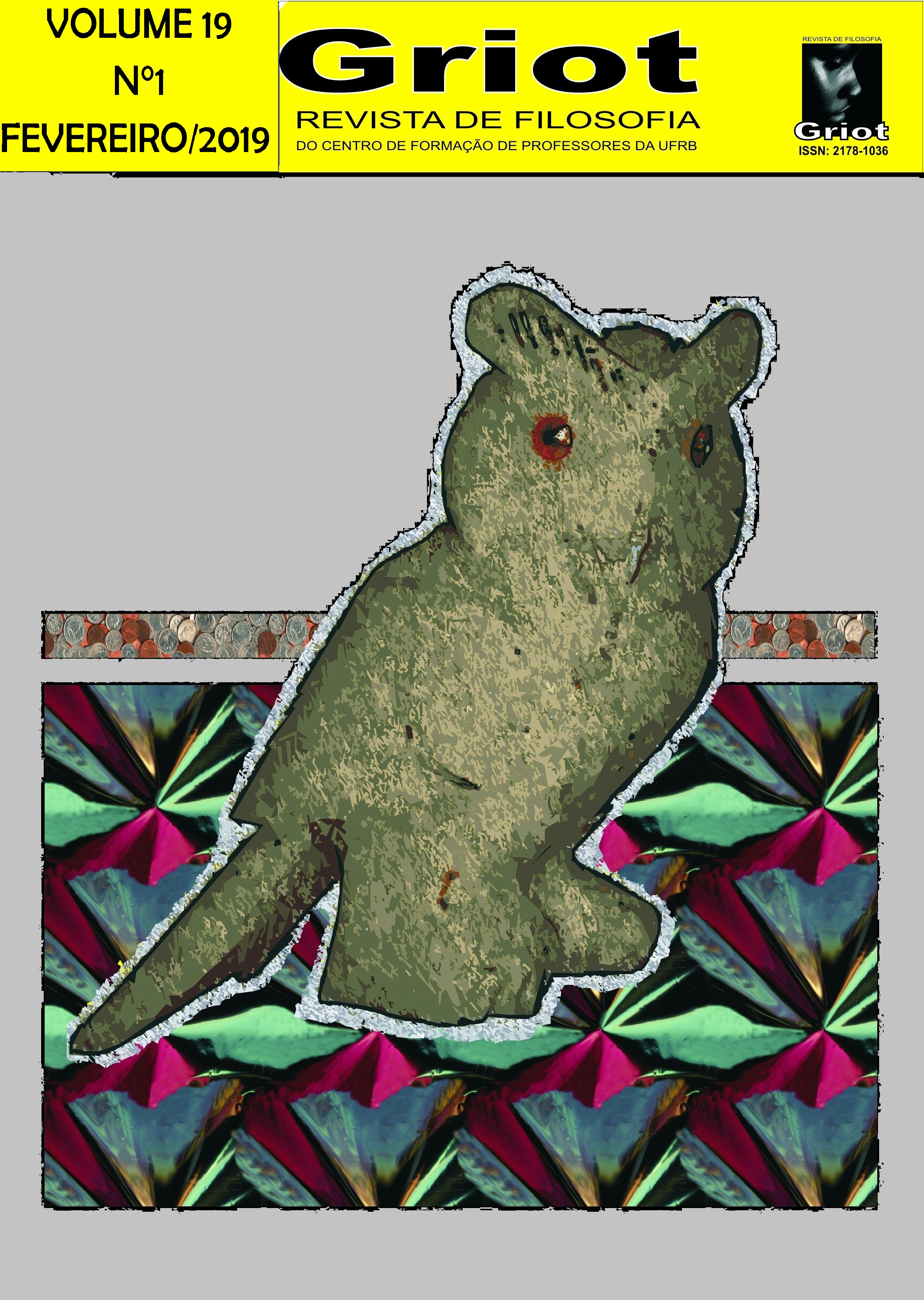Bildung e segunda natureza: Mcdowell leitor de Gadamer
DOI:
https://doi.org/10.31977/grirfi.v19i1.1061Palabras clave:
Bildung; Segunda natureza; McDowell; Espontaneidade.Resumen
Em seu livro Mente e Mundo John McDowell pretende superar a oscilação entre duas abordagens que pretendem mediar à relação entre as mentes e o mundo, de um lado temos o mito do dado dizendo que os pensamentos precisam de uma coerção a partir do mundo exterior, e do outro lado temos o coerentismo que apresenta a ideia de que apenas uma crença pode justificar outra crença. Para defender sua abordagem e naturalizar as capacidades conceituais, situando a espontaneidade na natureza sem reduzi-la no interior do reino da lei. A natureza humana seria então uma segunda natureza que não é só formada a partir das capacidades adquiridas no nascimento, mas que são formadas também a partir da Bildung. Ao lançar mão dessas noções, McDowell traz a discussão das ideias de Han-Georg Gadamer sobre a experiência de abertura para o mundo através da linguagem. Deste modo, a intenção do presente artigo é de discutir sobre as implicações das noções de Bildung e segunda natureza na obra de McDowell buscando um maior esclarecimento a partir da influência e das interpretações de Gadamer.
Descargas
Citas
BOYLE, Matthew. Additive Theories of Rationality: A Critique. In: European Journal of Philosophy, 2016.
BRISCO, Stefano Di. Second Nature and Animal life. In: Between the species, Issue X, August, 2010.
BUBNER, Rüdiger. Bildung and Second Nature. In: in N. H. Smith (a c. di), Reading McDowell, Routledge, 2002.
GADAMER, Hans-Georg. Verdade e Método I – Traços fundamentais de uma hermenêutica filosófica, Tradução de Flávio Paulo Meurer. 14a Ed. Petrópolis, RJ: Vozes. Bragança Paulista: Editora Universitária São Francisco, 2014.
GRONDIN, J. Vattimo’s Latinization of Hermeneutics: Why Did Gadamer Resist Postmodernism? In: Weakening Philosophy: Essays in Honour of Gianni Vattimo, ed. S. Zabala. Montreal & Kingston: McGill-Queen’s University Press, 2007.
MARINO, Stefano. Seconda natura, liberta e corporeità . Alcune considerazioni su Gadamer e McDowell. In: Philosophical Readings III.1, 2011.
McDOWELL, John. Capacidades conceituais na percepção, Tradução de Herivelto Pereira de Souza. doispontos, Curitiba, São Carlos, vol. 3, n. 1, p.147-170, abril, 2006.
McDOWELL, J. Mind and World. Cambridge (MA): Harvard University Press. 1996
McDOWELL, John. Mente e Mundo. Tradução de João Vergílio Gallerani Cuter. Aparecida, SP : Idéias & Letras, 2005.
McDOWELL, John. Gadamer and Davidson on Understanding and Relativism. In : The Engaged Intellect: Philosophical Essays. Harvard University Press. p. 134-151, 2009.
McLEAR, Colin. The Kantian (Non)- Conceptualism Debate. In: Philosophy Compass, July 21, 2014.
NORRIS, Christopher. ‘Second Nature’, Knowledge and Normativity: revisiting McDowell’s Kant. In: Diametros nr 27: 64 – 107, 2011.
PUTNAM, Hilary. Why reason can’t be naturalized. Synthese52(1982) 3-23.
THANING, Morten S. The Problem of Objectivity in Gadamer’s Hermeneutics in light of McDowell’s Empiricism. Springer International Publishing Switzerland 2015.
THORNTON, T. John McDowell. Chesham: Acumen, 2004.
Descargas
Publicado
Cómo citar
Número
Sección
Licencia
Los autores que publican en Griot: Revista de Filosofía mantienen los derechos de autor y conceden a la revista el derecho de primera publicación, con el trabajo simultáneamente licenciado bajo la Creative Commons Attribution 4.0 International License, permitiendo compartir y adaptación, incluso con fines comerciales, con el debido reconocimiento de la autoría y publicación inicial en esta revista. Lea mas...









































































